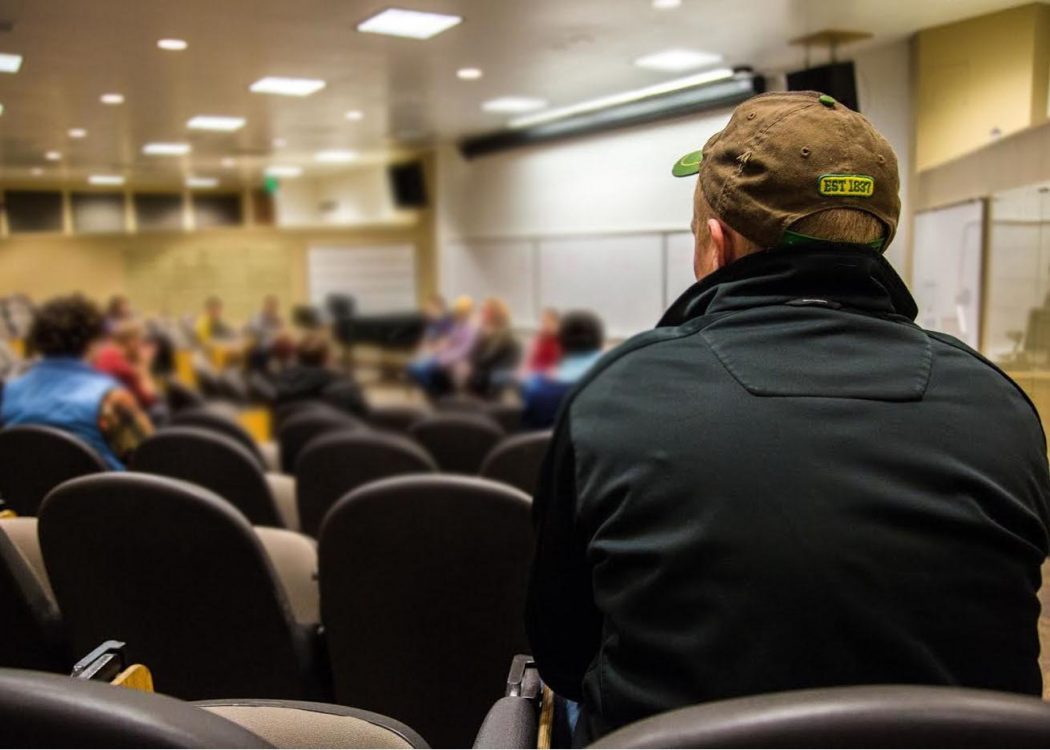USU students participate in OUTspoken panels
The college experience can be an important time in determining the course of one’s life.
There are choices to be made regarding careers, values, interests and relationships. The atmosphere of a situation introduces people to different ideologies, cultures and thoughts. The experiences a student has at college will in turn shape their lives.
One community that might be more prominent here than at home for many Utah State University students is that of the lesbian, gay, bisexual, transgender (LGBT) community.
A pivotal component of the Utah State’s LGBT community is the LGBTQA (lesbian, gay, bisexual, transgender, queer, questioning, asexual and allied) Center. This programs is a resource that is provided through USU’s Access and Diversity Center.
The LGBTQA Center was started by concerned students and was originally known as the GLBT (gay, lesbian, bisexual, transgender) resource center. The center was formally formed and dedicated in 2005, and officially became part of the Access and Diversity Center in 2011.
Macy Keith, the LGBTQA program coordinator, said the programs and center provide support for LGBTQA students and promote understanding and acceptance of diversity through education and outreach.
They also provide a safe zone and a LGBT library that is available to anyone who is interested in learning about LGBTQA issues.
To further help provide education and understanding, the center offers a number a groups and resources for students, faculty and staff. The programs include a brown bag support group, LGBTQA mentors, PFlag (Parents, Families and Friends of Lesbians and Gays), a Love is for Everyone (LIFE) club and training programs for those who want become involved in the community.
One program that is familiar to some students at USU are the OUTspoken panels.
“We approach all these activities hoping to deconstruct stigmas and stereotypes people may have and build bridges to acceptance,” Keith said. “Panels are especially good at this because we add a human face to a sometimes obscure concept.”
Typical panels consist of four or five members of the LGBT community coming to a class and simply introducing themselves and answering questions that students might have about the community or center.
The introductions start with the panel members saying their names, where they’re at in school, how they identify in terms to their sexuality and gender, and their coming out story — how they came out to themselves and others and accepted how they felt about their identity.
After the introductions, students can ask the panel questions about the LGBT community either addressed to an individual or the panel as a whole.
“Everybody in the class can just ask directly what they want to know about the LGBT community,” said Danny Mueller, a member of the OUTspoken panel. “Within those panels, they can do so without being afraid of offending us, because the panels are there to put the information out on how to not offend people who are members of the LGBT community.”
It is important to know that though the panel is made up of individuals and they have opinions that don’t represent the LGBT community as a whole, Keith said.
Mueller said the effectiveness of the panels lies within giving a face to members of the community.
“The second you have a connection with someone — for example someone with the LGBT community — it’s easier to actually see us as people instead of concepts.”
Professors and instructors can schedule an OUTspoken panel on the Access and Diversity Center website. They can request the panel give a basic introduction to the LGBT community or help with curriculum that is being covered in the class.
Overall, helping the students treat members of the LGBT community with respect is the main goal.
“I have lost track of the times that friends, acquaintances, and classmates at USU have intentionally or unintentionally said comments that invalidate my identity within the LGBTQA community or the existence of LGBTQA people in the first place,” said Kennedy Hendricks, a member of the LGBT community whose name was changed to protect their identity,
When Hendricks, who prefers they/them pronouns, came out and revealed their gender identity, a common question they were asked was whether or not they were molested growing up. It’s a common comment a lot of transgendered individuals receive which is considered insensitive.
Hendricks said people can avoid offending members of the community by simply recognizing the fact that they are people and treating them as such.
“The Access and Diversity Center has received ongoing support from University administration for our efforts to raise awareness and educate while advocating for our LGBTQA students,” said Michelle Bogdan-Holt, the director of USU’s access and diversity center.
She, as well as many members of the LGBT community, are hopeful that acceptance of the LGBT community on campus will continue to rise.
“I perceive our campus LGBTQA programming is reflective of what is happening on campuses nationwide,” she said. “In general, there is an increasing awareness and acceptance of the LGBTQA community.”
—dillan.passmore@aggiemail.usu.edu
@dirtyghettopass

